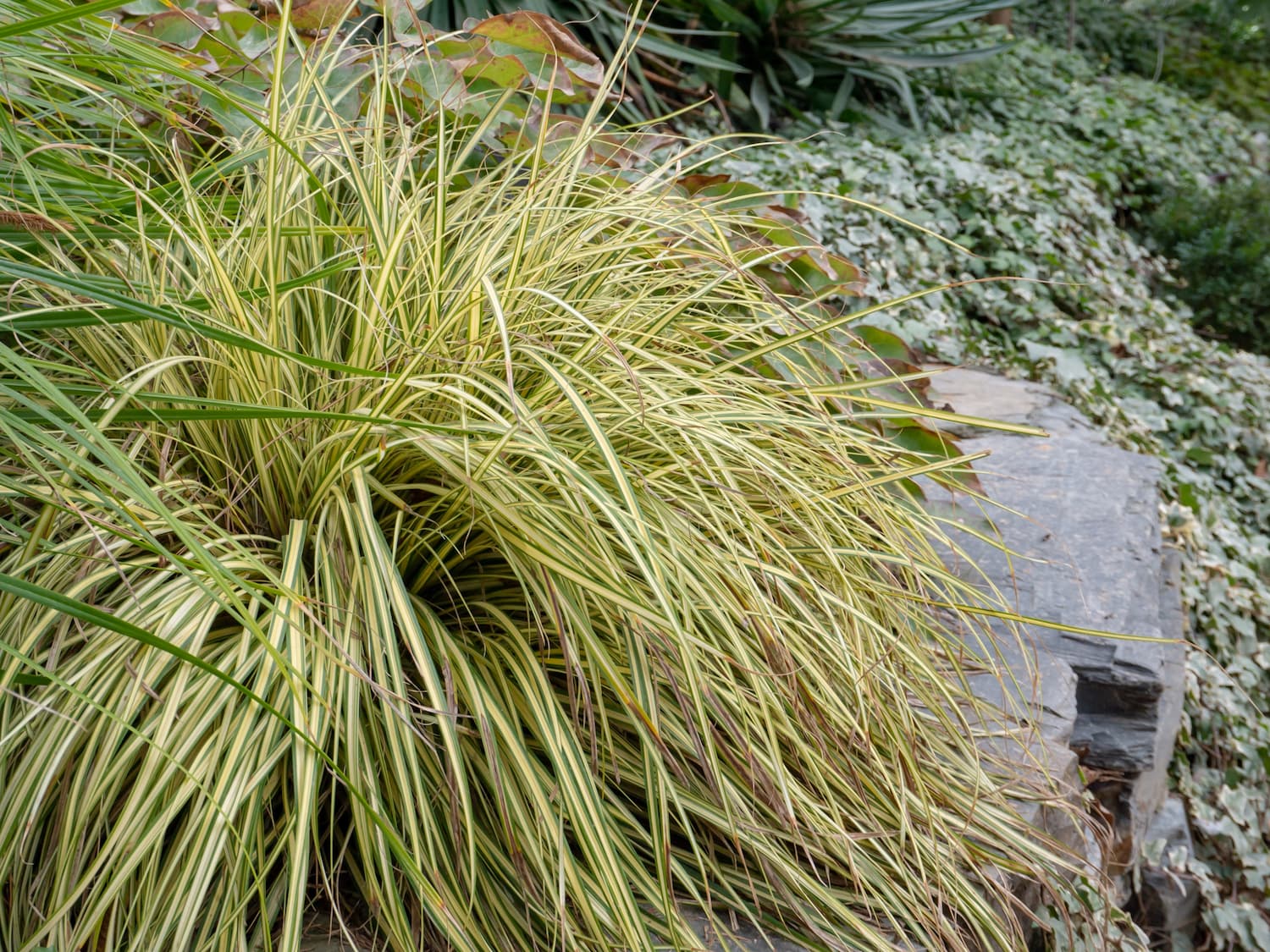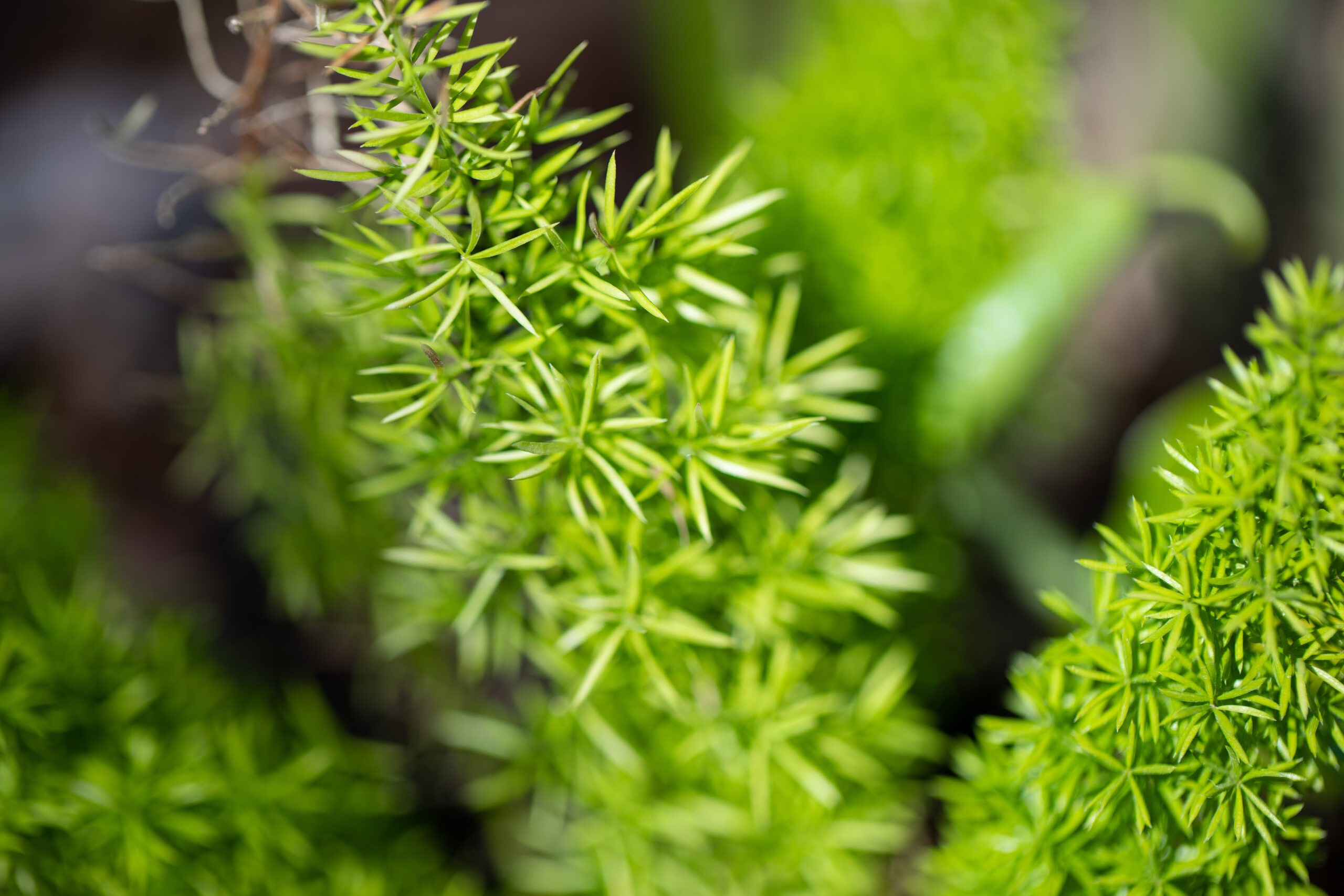Updated: February 28, 2024 Why don’t more commercial growers grow perennial milkweed? Milkweed seeds require…
Should my plant be yellow, or is it chlorotic? Maybe you need a Chlorosis Corrector!
What does it mean when we tell you that your plant is chlorotic? It means they are suffering from a micronutrient deficiency called chlorosis. Symptoms may range from a mild yellowing of the leaf tissue between the veins to severe yellowing. This can lead to the death of leaves, lack of vigor, and possibly death of the entire plant. Chlorosis often occurs in soils that are alkaline and heavy clay, like we have here in North Texas, especially during times of extreme heat.
An example of a chlorotic leaf. Unsure if your plants are chlorotic? Bring a sample of your plant to NHG Monday-Friday!
Chlorosis is typically caused when leaves do not have enough nutrients to synthesize all the chlorophyll they need. It can be brought about by a combination of factors including:
- A specific mineral deficiency in the soil, such as iron or magnesium.
- Deficient nitrogen and/or proteins.
- A soil pH at which minerals become unavailable for absorption by the roots
- Poor drainage (waterlogged roots).
- Damaged and/or compacted roots.
- Pesticides and particularly herbicides may cause chlorosis, both to target weeds and occasionally to surrounding plants.
- Exposure to sulfur dioxide.
- Ozone injury to sensitive plants.
Different plants will react differently to all of these situations, depending on their natural growing environments. For example, Azaleas prefer a soil pH significantly lower than we have in the DFW area, so they are much more prone to chlorosis.
Chlorosis Correctors – products to help you treat chlorosis
Aluminum Sulphate – Apply to acid loving plants. pH lowering is instant! For each full point on the scale that you want to reduce the pH level, it takes between 1 and 1.5 pounds applied to each 10 square feet of garden area. Also great to keep hydrangea blooms blue. Add to June lawns when you fertilize to make top growth green.
Copperas – Recommended to prevent the yellow and faded-out look in your lawns, shrubs and other plants caused by iron deficiency in high temperatures.
Ammonium Sulphate – Apply in fall. Great for vegetable gardens. Aids in making nitrogen more available and helps with leafy veggie growth. Both the yield and quality of crops grown on sulfur-deficient soils are reduced unless sulfur is included in the fertilizer treatment.
Soil Menders Elemental Sulfur – An all-natural mineral that can be used to correct alkaline soil problems and as a plant food to provide the nutrient sulfur.
Dr. Iron – Corrects iron deficiency which causes yellowing in plants and lawns. Use Dr. Iron on lawns, flowers, vegetables, shrubs, and more. Reduces soil pH, won't stain or burn like other iron products, and will not stain concrete.
Espoma Soil Acidifier – An all-natural mineral that can be used as a plant food to provide sulfur and as a soil amendment to correct alkaline soil. This acidifier turns hydrangeas blue, lowers pH of soil to its optimum range, and promotes growth and greening of plants. It won't burn your plants and is safe to use around children and pets
Visit us this summer and our staff will help you choose which product you need!



